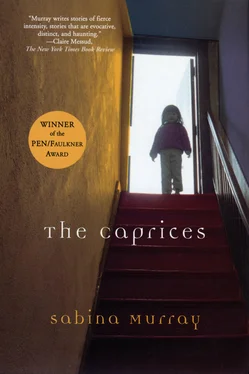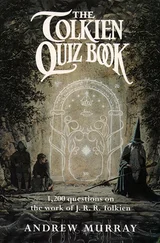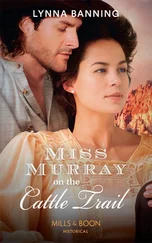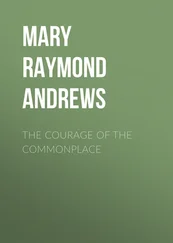After three years of imprisonment, Harry considered himself basically the same, although possessing an entirely new perspective. His abominable hunger made him think about his beloved horses only as the occasion for stew, and Harry, once a heavy smoker, had now learned to chew leaves with bovine complacency. In fact everything from the once familiar past had in some way been translated to his current (and only) pastime: struggling against his slow starvation. He’d watched all his muscle shrink to bone. His mind too was shrinking. He imagined that his brain was now the size of a salted prune. Sometimes he remembered what it felt like to dress in the morning, the feel of starched underclothes, the divide of a sharp pleat running the length of his leg. Or even the way he nudged the underbelly of a horse with his boot heel during a polo match, how he pulled his shoulders back to get the spine long and flexible so that when the ball came his way, he was in good shape to reach and send it spinning beneath the straining muscle of the horse’s neck. Sometimes Harry could meditate on a downpour as it thundered across the roof; he could translate it into galloping hoofs across the cantonment polo turf. And in the early mornings, if he could focus out the groaning of the dying and smell of the dead, he remembered the anticipation and excitement that happened in the brief coolness before the day blossomed into searing heat.
Harry had never considered fighting alongside the Japanese. He was aware of Subhas Chandra Bose’s movement and the Indian National Army. Bose had originally tried to recruit Germany to help him rid India of the British, but in 1940 Germany was occupied with the war in Europe. Bose had found the Japanese more helpful. Indian National Army officers had shown up at Changi, but had only managed to recruit five thousand of the forty thousand Indian troops captured on Malaya. These men were now fighting the British in Burma. Harry had not been approached to enlist. He decided the Indian National Army thought him too British. And he was. Muslims and Hindus were as bad if not worse to the Anglo-Indians as the English. He’d cast his lot with the Raj, which at least aimed to do everything in the name of civilization. This loyalty had landed him in Singapore.
• • •
Harry pinpointed the beginning of his ill fortune to a polo match at the start of the cool season. The day began inauspiciously. Over runny eggs, steak, and toast, Harry read about the latest developments in Africa. Outside the mess, he’d run into Tunsdale, who was still drunk from the night before, and because of this, was still in good shape. There was some fuss among the servants about a rabid dog. While Harry was smoking a cigarette he heard a shot. A couple of minutes later he saw the sweeper, broom in hand, rushing from the direction of the shot to the kitchen. Harry had asked about the shot and the sweeper, with his head bobbing in excitement, told Harry that the rabid dog was dispatched, midleap, going for the rifleman’s throat. As worthy a target as any young tiger.
“I hope you’re not going for the cook,” Harry had joked. The sweeper thought that was very funny.
Harry looked up at the sun. He had to get a move on.
“I’m playing today,” he told the sweeper, who wished him luck. Harry headed for the stables.
It was the start of 1941. The camp where Harry was stationed was a mere thirty miles outside of Calcutta, but this proximity meant little since the cantonment was a world unto itself; the camp had its own club and social life, and was completely autonomous. Calcutta was for the British memsahibs to go dress shopping and for the British officers to hunt for wives. Harry’s regiment, the 11th Indian, was mostly a combination of British and Anglo-Indian officers, and sowars and sepoys recruited from the martial classes, dominated by Sikhs. The officers were all educated (the British at Sandhurst in England and the others at the Indian Military Academy at Dehra Dun) and a few were gifted horsemen. Once a month they played polo. Harry rented his horse from the army, but some of the wealthier fellows had their own, and the two teams were rounded out with the police chief, a local magistrate (who kept a half-dozen ponies, but preferred pig sticking), and a few Indian Civil Service men, all impeccably dressed and hesitant to get muddied.
There was little to do but sport, and if you didn’t count drink, nothing to do but sport. The army-sanctioned, disease-free brothels were off limits to the Indians stationed there, and although Harry passed for European some of the time, if his blackness was to be discovered he would rather the discoverers weren’t the drunken, sex-starved soldiers who seemed to frequent the lal bazaar. Rumors were circulating that the Japanese were making real trouble in China and would bleed into Burma in no time at all, but the only person who seemed to take the threat seriously was Subhas Chandra Bose (who was eager to have the British quit India) and he embraced it. On a day like this, with nothing looming but a polo match and the heavy drinking sure to follow, war was far from Harry’s mind.
Harry found his horse brushed and ready. He insisted on saddling her himself, despite the protesting groom, then walked her over to the polo field so as not to tire her out. Major Berystede arrived later with two horses, riding a third mount. Each of the horses had its own turbaned syce to minister to its needs. An attendant carrying mallets and a boot brush stood by, his expression impassive, his clothes immaculate. Couches lined the east perimeter of the field, on which an assortment of hatted, white-stockinged English ladies and their small children had arranged themselves. Waiters with silver trays propped gracefully on the left hand ministered lemonade with the right. A large tree on the west perimeter was quickly filling up with barefooted children.
On Harry’s team were the pig-sticking magistrate, Captain McCaffrey, on a black Australian pony, and the local sanitation officer. On the opposing team were Major Berystede; a senior Indian Civil Service officer whom Harry recognized from the camp but didn’t know; the venerable Colonel Corning; and Lieutenant Ruff, who was very young and very well connected. Harry was beyond doubt on the better team. Berystede, despite his enthusiasm and entourage, could seldom give his fellow players more than an outraged “Stop sticking your elbow into my ribs, you barbarian.” His other team members were competent and that was all. In contrast, Captain McCaffrey was a ferocious player, drinker, and soldier. The magistrate was equally fierce. And the local sanitation officer had a chip on his shoulder owing to his nickname, “Toilet-wallah.”
One short hour later, the match was over.
In the course of the match, Harry scored six of the eight points for the losing team. Apparently Berystede had complete disregard for right of way, but this was not of interest to the umpires. Neither was Berystede’s menacing the magistrate’s horse with his mallet, nor his galloping right at Harry, whooping like a crazy Afghan, which had unsettled Harry’s horse. Twice the game had been stopped so that Ruff could retrieve his mallet from where he’d dropped it. This had occasioned McCaffrey to yell something that had the words “mother” and “tit” in the same sentence, and although the umpires never determined precisely what had been said to the young lieutenant, they’d awarded Ruff a penalty, which — miracle of miracles — had scored a goal.
Harry was angry with himself for even entertaining thoughts of victory. He smiled the stiff smile of a good sportsman. There was a smattering of applause as the men left the field, ladies winging their pale hands together, the clapping of the dead. Simultaneously, a gathering of crows clattered off the ground and settled into the tree where the children had been and now were not. The sun was larger in the sky, whiter than yellow, and Harry’s shadow was pooled around the soles of his boots.
Читать дальше












